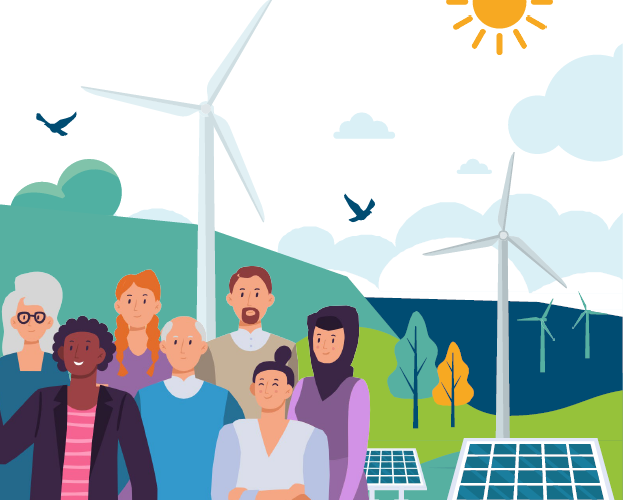The transition to a renewable energy system is inevitable . But the key challenge is ensuring it happens in a fair and inclusive way for all citizens. Recognizing this, the European Commission is expected to propose a new “Citizen Energy Package” in 2025 to boost public participation in the energy transition.
Currently, community engagement in RES projects varies widely across EU countries. While countries like France and Germany benefit from legal frameworks that promote public participation in renewable energy development, others—such as Greece, Spain, and Poland—lack comprehensive legislation in this area. The absence of meaningful public consultation and co-design in RES projects has fueled a significant (and in some cases justified) wave of opposition from local communities.
In this context, and with the aim of strengthening local community engagement in RES projects, CAN Europe—the largest network of environmental organizations in Europe—published a report titled “Community Engagement and Fair Benefit Sharing of Renewable Energy Projects.” The report introduces 13 Key Performance Indicators (KPIs) for renewable energy developers, quantifying the levels of community participation and benefits they offer. These KPIs provide a framework to assess and improve corporate practices.
Building on this work, Electra Energy and The Green Tank translated the 13 KPIs and included a set of proposals for companies and public authorities in the Greek context to enhance social inclusion in renewable energy. These include:
- Establishing a dedicated regulatory framework with a clear methodology for measuring social participation in renewable energy projects, based on the KPIs outlined in the report.
- Supporting and institutionalizing the role of energy communities as key players in mobilising and coordinating local community participation.
- Setting ambitious national targets for co-owned renewable energy projects between companies and communities, as well as for (collective) self-production through energy communities.
“Renewable energy’s success hinges on communities, their meaningful engagement, and the fair and tangible benefits they receive. For developers, overcoming local opposition is often one of the biggest hurdles. Our research across Europe has documented shining examples of converting potential conflicts into celebrated successes. Now is the time to elevate these best-in-class practices from exceptions to norms, making community-centered renewables the gold standard across Europe”
— Seda Orhan, Renewable Energy Programme Director, CAN Europe
“Greece’s National Energy and Climate Plan rightly envisions a tripling of renewable energy projects by 2030. But where will they be sited, and who will benefit from them? Broad social participation can support local economic development, enable sound spatial planning (e.g., by excluding untouched mountains or islets), and foster social cohesion.”
— Christos Vrettos, Policy & Communications Officer, Electra Energy
“Greek citizens have already shown a strong interest in participating in the energy transition, forming energy communities, and embracing self-production schemes. It is therefore crucial for the State to establish a legislative and regulatory framework that encourages companies to meaningfully engage local communities—ensuring their involvement not only in project design but also in the fair distribution of economic benefits.”
— Ioanna Souka, Energy Policy Analyst, The Green Tank



